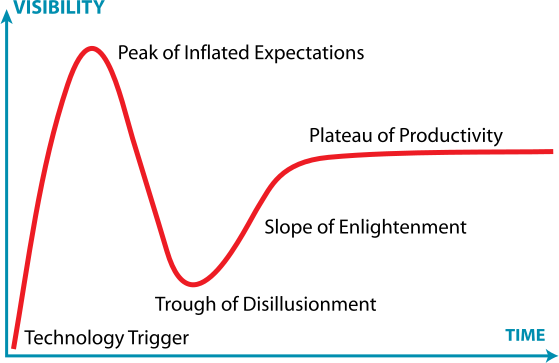Last week, I attended the Americas Conference on Information Systems (AMCIS) in Salt Lake City. AMCIS is one of the major conferences in my field, information systems. As you might imagine, there were many sessions and discussion about AI, including a keynote panel. There were also lots of hallway chats. One particularly great session was a Professional Development Symposium led by Dr. Amy Connolly of James Madison University. The focus was on how AI is affecting the digital divide. The discussions were great and full of insights. I learned quite a bit from my colleagues.
Many of the AI sessions were focused on how AI is affecting business in general and information systems in particular. These were interesting, especially as related to how we need to prepare our students for an AI-driven world (which IS coming). I learned quite a bit from these sessions and conversations. Two things stand out though.
Everyone is confused
I listened to and talked with A LOT of very smart, experienced people about AI and how it's affecting the world of education. Although many people expressed opinions and shared interesting things they were doing, my take-away is that nobody really has this figured out. That's not really surprising given the pace of development.
I was surprised by the number of schools that still don't have AI policies. Maybe I shouldn't be too surprised about this, given the pace of higher ed bureaucracy. As I've written before, I STRONGLY urge you to develop AI policies for your courses, regardless of whether your school has one. I'm happy to share mine. Just email me craig@AIGoesToCollege.com.
There's also considerable confusion about how to adapt our teaching methods to account for AI use. There was general agreement that we're going to need to rethink assessment. It's just too easy for students to short circuit their learning with AI if we keep using traditional ways of evaluating learning. Frankly, there's no magic, one-size-fits-all approach for this; it's going to take work and time. As I hear of good approaches, I'll be sure to report them in this newsletter. I'd love to hear about your experiments, regardless of whether they succeed or fail.
So, if you're confused about AI and its impacts, join the very large club. If you're thinking seriously about AI and how it will impact the way you teach, create scholarship, and perform your work, you're ahead of most people in higher ed. Don't get stressed out by thinking you're behind -- you're not. That being said, you shouldn't sit back and think you've got it all figured out -- you don't. Keep at it, (keep reading AI Goes to College!), keep experimenting, keep talking to your students and colleagues ... we're at the early stage of a significant transformation of higher education, which brings me to my second big observation.
AI is here to stay
In the next few months, you're going to hear a lot about the AI hype being overblown. Much of the hype IS overblown, but that doesn't mean that AI isn't going to have lasting impacts. Generative AI seems to be following the Gartner Hype Cycle (https://www.gartner.com/en/research/methodologies/gartner-hype-cycle).
Source: https://en.wikipedia.org/wiki/Gartner_hype_cycle
We're currently somewhere between the peak of inflated expectations and the trough of disillusionment (I think, but nobody really knows). I'm going to write more about this later, but the thing to remember is that when we reach the plateau of productivity the world will be very different than it was at the starting point. Yes, much of the hype will turn out to be nonsense, but the transformation will be real. I am confident that higher ed will be substantially different in 2034 than it is today. What those differences will be is up for speculation, one thing is certain: but things WILL be different.
We've seen this before in the dot-com era. There was a boom and a bust, but the world was never the same (and neither was higher ed). We all need to keep learning, keep experimenting, and keep thinking about how to leverage AI while avoiding its negative effects. As the saying goes, it's a process.
What do you think? Let me know by emailing me at craig@AIGoesToCollege.com or using the contact link at https://www.aigoestocollege.com/.





